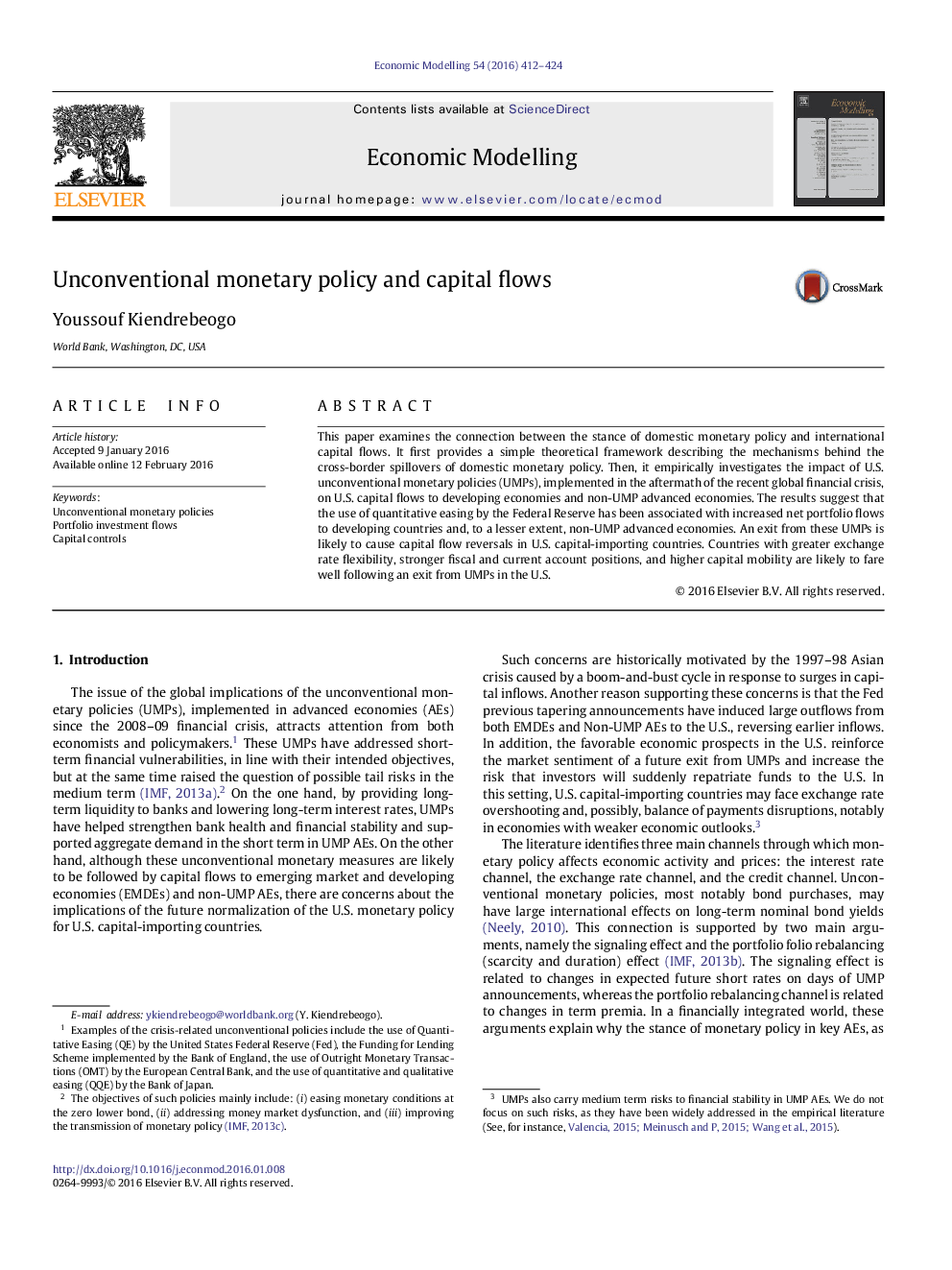| Article ID | Journal | Published Year | Pages | File Type |
|---|---|---|---|---|
| 5053402 | Economic Modelling | 2016 | 13 Pages |
â¢Fed's unconventional monetary policies have led to net portfolio flows to developing countries.â¢A future exit from these unconventional monetary policies is likely to cause a capital reversal from U.S. capital importing countries.â¢Countries with stronger macroeconomic positions will be likely to fare well following an exit in the U.S.
This paper examines the connection between the stance of domestic monetary policy and international capital flows. It first provides a simple theoretical framework describing the mechanisms behind the cross-border spillovers of domestic monetary policy. Then, it empirically investigates the impact of U.S. unconventional monetary policies (UMPs), implemented in the aftermath of the recent global financial crisis, on U.S. capital flows to developing economies and non-UMP advanced economies. The results suggest that the use of quantitative easing by the Federal Reserve has been associated with increased net portfolio flows to developing countries and, to a lesser extent, non-UMP advanced economies. An exit from these UMPs is likely to cause capital flow reversals in U.S. capital-importing countries. Countries with greater exchange rate flexibility, stronger fiscal and current account positions, and higher capital mobility are likely to fare well following an exit from UMPs in the U.S.
